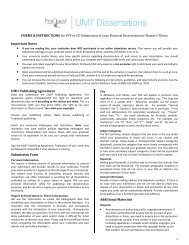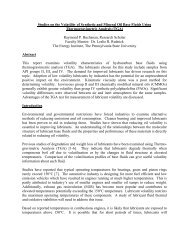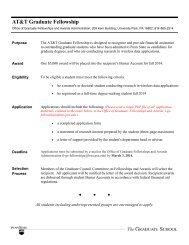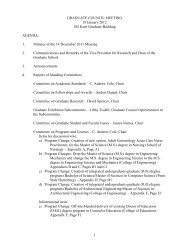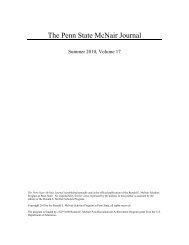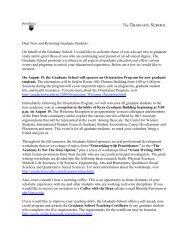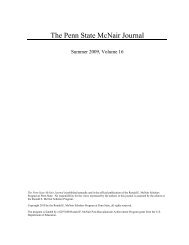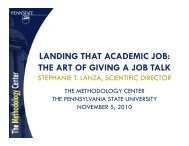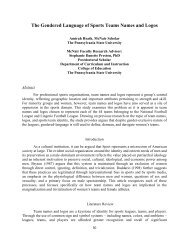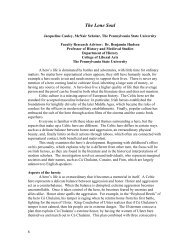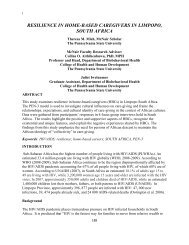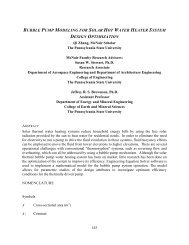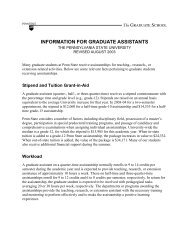1 GRADUATE COUNCIL MEETING 9 May 2012 102 Kern Graduate ...
1 GRADUATE COUNCIL MEETING 9 May 2012 102 Kern Graduate ...
1 GRADUATE COUNCIL MEETING 9 May 2012 102 Kern Graduate ...
You also want an ePaper? Increase the reach of your titles
YUMPU automatically turns print PDFs into web optimized ePapers that Google loves.
J7<br />
CSA 504: Rsh & Asmnt/Stu Africa 10<br />
GEOG 436: Ecology, Economy and Society (high Africa content) 15 12<br />
GEOG 454: African Resources and Development 26<br />
*GEOG 454 has an enrollment of 36 in Fall 2011<br />
The information on Table 1 shows that Comparative Literature is among a number of<br />
departments which offer Africa-related courses. In spring CMLIT 523 had an enrollment of ten,<br />
which is a very healthy enrollment for a graduate seminar. This indicates that there already<br />
exists a significant body of Comparative Literature graduates who have an interest in Africa.<br />
The dual-title degree program is likely to appeal to such students and might even increase their<br />
ranks in Comparative Literature. These students will provide the constituency for the dual-title<br />
degree program.<br />
Outcomes<br />
The Dual-Title Doctoral Degree Program in Comparative Literature and African Studies is<br />
expected to have several beneficial outcomes for graduate education at Penn State in general, and<br />
for Comparative Literature doctoral students, in particular. The program will have the following<br />
specific outcomes.<br />
i. Provide an institutional framework within which Comparative Literature doctoral<br />
students can streamline their interest in African Studies by taking a suite of courses,<br />
which integrates a regional and/or thematic concentration.<br />
ii. Provide Comparative Literature students with a multidisciplinary approach (beyond the<br />
primary discipline) towards addressing problems of African development.<br />
iii. Provide Comparative Literature students with regional expertise that will be attractive to<br />
prospective employers in academia, the US government, bilateral and multilateral<br />
agencies and NGOs.<br />
iv. Enhance the appeal of the Comparative Literature doctoral degree to prospective national<br />
and international students.<br />
v. Enhance the international, multicultural vision of the College of Liberal Arts and Penn<br />
State.<br />
vi. Expand research linkages between Comparative Literature doctoral students and African<br />
universities and agencies with which African Studies graduate faculty have<br />
established research networks (examples include, the University of South Africa, the<br />
University of Limpopo in South Africa, the University of Zimbabwe, Kenya Institute<br />
for Public Policy Research Analysis, South Africa’s Human Science Research<br />
Council, and the Organization for Social Science Research in Eastern and Southern<br />
Africa) (see Table 2, below).<br />
vii. Expand the employment potential for Comparative Literature doctoral graduates by<br />
providing them with a degree that will make them more competitive for academic<br />
positions and for positions in international governmental and non-governmental<br />
agencies and organizations. Table 3 lists agencies, just within the United Nations,<br />
that may be highly interested in hiring an applicant with a Ph.D. in Comparative<br />
Literature and African Studies.



